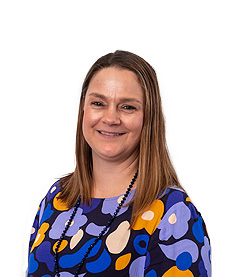-
Business valuations
We offer expert valuation advice in transactions, regulatory and administrative matters, and matters subject to dispute – valuing businesses, shares and intangible assets in a wide range of industries.
-
Capital markets
You need corporate finance specialists experienced in international capital markets on your side if you’re buying or selling financial securities.
-
Complex and international services
Our experience of multi-jurisdictional insolvencies coupled with our international reputation allows us to deliver the best possible outcome for all stakeholders.
-
Corporate insolvency
Our corporate investigation and recovery teams can help you manage insolvency situations and facilitate the best outcome.
-
Debt advisory
An optimal funding structure for your organisation presents unprecedented opportunities, but achieving this can be difficult without a trusted advisor.
-
Expert witness
Our expert witnesses analyse, interpret, summarise and present complex financial and business-related issues which are understandable and properly supported.
-
Financial models
A sound financial model will help you understand the impact of your decisions before you make them. Talk to us about our user-friendly models.
-
Forensic and investigation services
We provide investigative accounting and litigation support services for commercial, matrimonial, criminal, business valuation and insurance disputes.
-
Independent business review
Is your business viable? Will it remain viable in the future? A thorough independent business review can help your organisation answer these fundamental questions.
-
IT forensics
Effective ESI analysis is integral to the success of your business. Our IT forensics experts have the technical expertise to identify, preserve and interrogate electronic data.
-
Mergers and acquisitions
Grant Thornton provides strategic and execution support for mergers, acquisitions, sales and fundraising.
-
Raising finance
Raising finance - funders value partners who can deliver a robust financial model, a sound business strategy and rigorous planning. We can guide you through the challenges that these transactions can pose and help you build a foundation for long term success once the deal is done.
-
Relationship property services
Grant Thornton offers high quality independent advice on the many financial issues associated with relationship property from considering an individual financial issue to all aspects of a complex settlement.
-
Restructuring and turnaround
Grant Thornton’s restructuring and turnaround service capabilities include cash flow, liquidity management and forecasting; crisis and interim management; financial advisory services to companies and parties in transition and distress
-
Transaction advisory
Our depth of market knowledge will steer you through the transaction process. Grant Thornton’s dynamic teams offer range of financial, commercial and operational expertise.
-
Corporate tax
Grant Thornton can identify tax issues, risks and opportunities in your organisation and implement strategies to improve your bottom line.
-
Employment tax
Grant Thornton’s advisers can help you with PAYE (payroll tax), Kiwisaver, fringe benefits tax (FBT), student loans, global mobility services, international tax
-
Global mobility services
Our team can help expatriates and their employers deal with tax and employment matters both in New Zealand and overseas. With the correct planning advice, employee allowances and benefits may be structured to avoid double taxation and achieve tax savings.
-
GST
GST has the potential to become a minefield and can be expensive when it goes wrong. Our technical knowledge can help you minimise the negative impact of GST
-
International tax
International tax rules are undergoing their biggest change in a generation. Tax authorities around the world are increasingly vigilant, especially when it comes to global operations.
-
Research and Development
R&D tax incentives are often underused and misunderstood – is your business maximising opportunities for making claims?
-
Tax compliance
Our advisers help clients manage the critical issue of compliance across accountancy regulations, corporation law and tax. We also offer business and wealth advisory services, which means we can provide a seamless and tax-effective offering to our clients.
-
Transfer pricing
Tax authorities are demanding transparency in international arrangements. We businesses comply with regulations and use transfer pricing as a strategic planning tool.
-
Audit methodology
Our five step audit methodology offers a high quality service wherever you are in the world and includes planning, risk assessment, testing internal controls, substantive testing, and concluding and reporting
-
Audit technology
We apply our audit methodology with an integrated set of software tools known as the Voyager suite. Our technology has been developed to produce quality audits that are effective and efficient.
-
Financial reporting advisory
Our financial reporting advisers have the expertise to help you deal with the constantly evolving regulatory environment.
-
Business architecture
Our business architects help businesses with disruptive conditions, business expansion and competitive challenges; the deployment of your strategy is critical to success.
-
Cloud services
Our team is led by cloud business experts who tailor services to the needs of your organisation, from strategy and implementation to ongoing services assurance.
-
Internal audit
Our internal audits deliver independent assurance over key controls within your riskiest processes, proving what works and what doesn’t and recommending improvements.
-
IT advisory
Our hands on product experience, extensive functional knowledge and industry insights help clients solve complex IT and technology issues
-
IT privacy and security
IT privacy and security should support your business strategy. Our pragmatic approach focuses on reducing cyber security risks specific to your organisation
-
Organisational & cultural change
The key to sustainable and future growth is a unified organisation operating within a strong cultural context, where transparency and communication are the priority for Kaimahi, and where visible leadership means walking the talk – but where does that journey begin?
-
Payroll assurance
Our specialist payroll assurance team can conduct a review of your payroll system configuration and processes, and then help you and your team to implement any necessary recalculations.
-
PCI DSS
Our information security specialists are approved Qualified Security Assessors (QSAs) that have been qualified by the PCI Security Standards Council to independently assess merchants and service providers.
-
Process improvement
As your organisation grows in size and complexity, processes that were once enabling often become cumbersome and inefficient. To maintain growth, your business must remain flexible, agile and profitable
-
Procurement/supply chain
Procurement and supply chain inputs will often dominate your balance sheet and constantly evolve for organisations to remain competitive and meet changing customer requirements
-
Project assurance
Major programmes and projects expose you to significant financial and reputational risk throughout their life cycle. Don’t let these risks become a reality.
-
Risk management
We understand that growing companies need to establish robust internal controls, and use information technology to effectively mitigate risk.
-
Robotic process automation (RPA)
RPA is emerging as the most sophisticated form of automation used to help businesses become more agile and remain competitive in the face of today’s ongoing digital disruption.

Based on my own experiences, these are my tips for NFP board members.
1 Align your board appointments with causes you are passionate about
For most NFPs, board members are unpaid, so being personally aligned with the purpose of the entity is essential to keep you motivated and engaged. Volunteers who lack engagement won’t add value to the charity’s mission, purpose and overall impact.
If you don’t feel strongly about the cause, leave the board position for someone who has the passion needed to be productive and enjoy their role.
2 Foster a positive environment where everyone can express their opinions
If nobody is willing to speak up with different opinions and ideas, you will make very little progress. Equally unhelpful, but more stressful, is a meeting filled with conflict, where everybody disagrees and no consensus can be reached.
You need to find a balance. All boards will have times where there isn’t consensus. The key to achieving a resolution starts with everyone feeling comfortable about expressing their opinions regardless of whether they’re popular. This involves creating a safe environment where everyone has the freedom to be authentic and bring their true opinion to the table. I have personally experienced times where there have been disagreements among board members. When this happens, everyone needs time to express their views, and to respect everyone’s differences in opinion. This way, a consensus is reached faster, and when everyone supports the final decision it’s an extremely positive experience.
3 If you bring a problem, also bring a solution
It’s not uncommon to sit on a board or committee with someone who likes to turn up and throw a problem or two on the table. This negativity will make everyone else feel like there’s an extra weight on their shoulders as they try to solve the problem.
A far more powerful and productive approach is to by all means raise your issue, but also put some thoughts together about potential solutions to show that you are willing to work collaboratively as a team to find a resolution.
4 Encourage diversity of thought
Diversity isn’t just about ticking boxes. It’s not about ‘Do we have a woman on the board?’. It’s about ‘Is the person opposite me going to challenge me? Are they going to bring different perspectives and see the issues through a different lens?’. Look for people who fill gaps in thinking or perspective to help represent various points of view, so you can cover as many angles as possible and ultimately get the most out of every discussion.
5 Roll up your sleeves and get involved
Boards for large businesses might be purely strategic. But NFP boards need more than just top-level engagement. As a charity trustee board member, expect to roll up your sleeves and delve into operations from time to time. If your approach is, ‘That’s not really the role of the board, I don’t want to help with that,’ you’re not likely to win any friends as the rest of the board members knuckle down and start working on day-to-day problems. It can also give you some useful insights into the culture and operations of the organisation.
6 Be prepared for each meeting
When board members arrive at a meeting without doing their homework, it means they’re not able to contribute fully to the conversation. Ensure you are prepared for every meeting, whether that’s having ticked off your to-do list, read the paperwork, or researched the topics that are up for discussion. And it’s not enough to be physically present, you also need to be mentally present and engaged. If you’re daydreaming or playing wordle during meetings, you’re not bringing much value to the organisation.
You also need to be prepared to dig deeper and go beyond what is presented to you. For example are you following the board’s rules and workplan? Or, is there anything missing from the agenda that you need to raise?
7 Follow through on your commitments
Board members who turn up at each meeting having ‘forgotten’ to do what they promised impact the whole group. Be accountable and reliable: if you say you’re going to do something, get it done.
It’s hard to push volunteers to complete work; the charity has no leverage to make you achieve everything on your task list. It falls on you to walk the talk, do what you have promised, and cast a positive leadership shadow.
8 Be selective when recruiting new members
Recruiting for an unpaid position can mean small charities take whoever they can get. However, ideally you don’t want to simply sign up the first person who expresses an interest. A bad apple will rapidly make the whole board dysfunctional.
Try using a formal skills matrix to identify areas where the board needs extra expertise, then recruit for those specific skillsets. This has the added benefit of everyone knowing their position on the field, so to speak. For example, on my current Board financial issues come to me; legal issues to the lawyer; HR issues to the HR expert. It creates clear roles and happier board members.
You can also trial prospective members. Try to find out if they will be a good fit, by inviting them to a meeting to see whether they’re prepared, engaged and passionate.
9 Use trustee rotation for fresh perspectives
There should be an exit strategy for board members as it will need fresh blood, the members may want to move on, and it provides an opportunity to disestablish members who aren’t bringing value to the organisation. New members prevent the board from becoming stale, bring in new ideas, and provide extra knowledge and skills.
Getting it right leads to better outcomes for everyone
As a trustee I have found my board role extremely rewarding. You can make a big impact on the community by donating your time and professional expertise.
If you can get it right, being on a well-functioning board will be an enjoyable experience for you and your co-trustees, boosting your personal development and driving better performance and outcomes for a cause you are passionate about.






